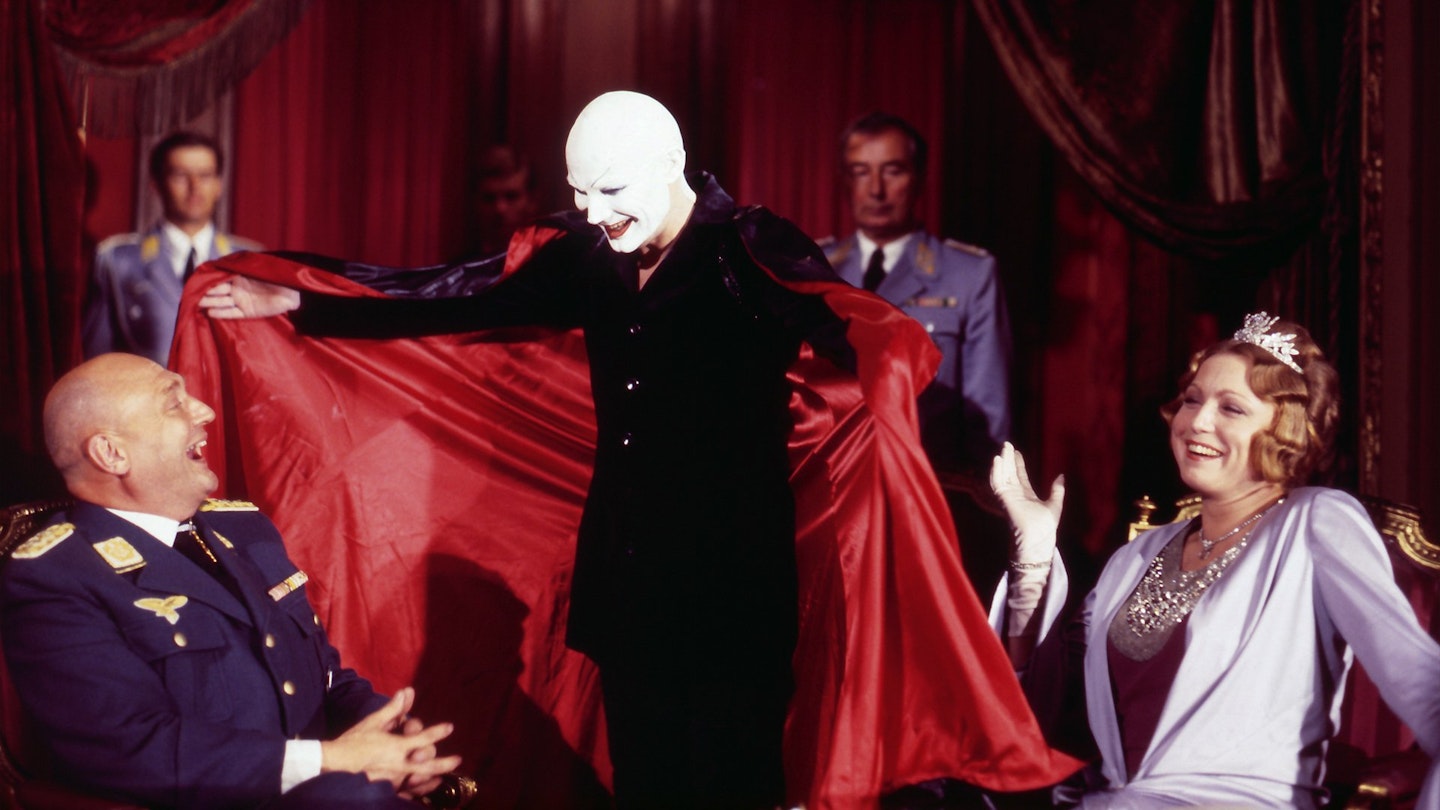Mephisto is based on a 1936 roman à clef by Klaus Mann, whose brother-in-law (and rumoured lover), Gustaf Gründgens had accepted the patronage of Luftwaffe chief Hermann Göring to become one of the most celebrated stage and screen actors in Nazi Germany. Gründgens (who is best known for playing the underworld kingpin in Fritz Lang's M, 1931) was later exonerated by the Allies and allowed to resume his career in both the Federal and Democratic republics and, ironically, he even played Faust in a 1960 production.
His Mephistophelean plight formed the first part of Istvan Szabo's Central European trilogy, which was completed by Colonel Redl (1985) and Hanussen. However, Szabo has also subsequently explored the nature of artistic collusion in Taking Sides, which considered the case of Hitler's favourite conductor, Leon Furtwängler.
Thanks to cinematographer Lajos Koltai and art director Jozsef Romvari, Szabo brilliantly recreates the decadent worlds of the cinema/theatre and the inner-circle of the ruling elite in the Weimar and Nazi periods. But the film's morality is a little too easy, as it remains on the side of the angels in setting up Hendrik Höfgen for his fall. Moreover, Klaus Maria Brandaeur is restricted to a surface characterisation that never allows us to see whether Höfgen has genuine talent (which Gründgens most certainly did) or whether he is simply a complacent pawn in a propagandist game.
Consequently, his consistent melodramatics rob his assisting in black mistress Juliette Martens (Karin Boyd)'s escape of any heroism and his final realisation of his folly of truly affecting pathos.
This is mainly due to the fact that Szabo sought to make Höfgen an everyman, whose weakness could recur in anyone with a taste for flattery and the limelight. However, it also owed something to the fact that Mephisto was an international co-production and the need for some accessible universality deprived the film of its specificity of focus and compromised its integrity. Despite (or perhaps because of) this concession, it still won the Academy Award for Best Foreign Film.
